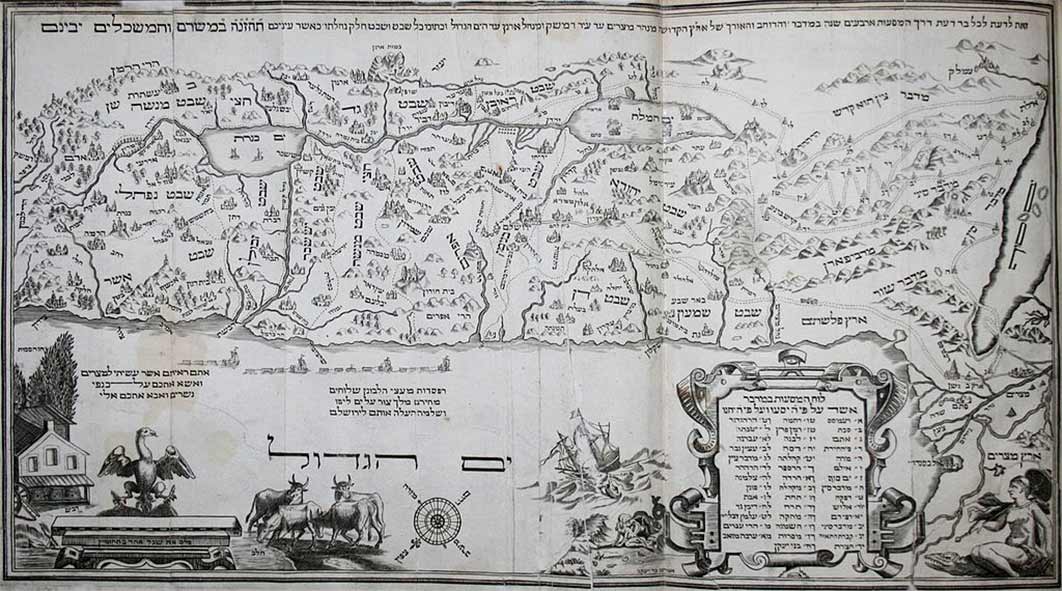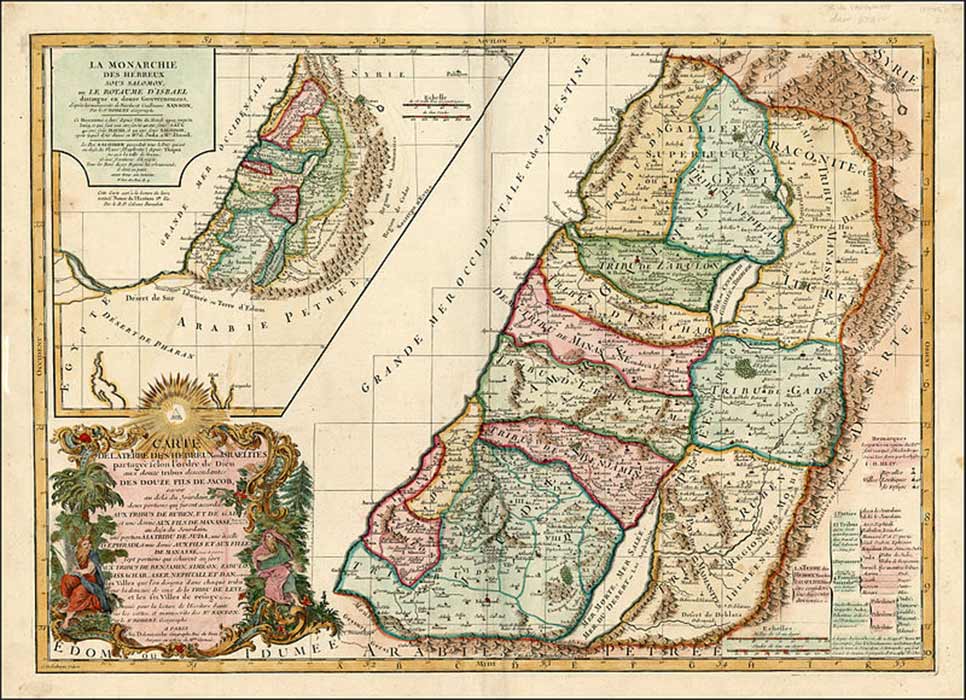
Seeking The Ten Lost Tribes Of Israel, Finding DNA
The Ten Lost Tribes of Israel have been considered lost for over 3,000 years, but recent evidence demonstrates that they were not lost, they had merely been scattered around the world and had assimilated into other cultures. When a valued item is missing, one is generally directed back to the last place it was seen. This is true for tracing missing people too. By starting where they were last seen, in many cases one can trace their movements, follow their trail, read the signs and hopefully track them down. Do the same methods work when not only people, but entire tribes are lost, thought gone forever? The principles still apply and when people who claim to be a part of the missing tribe are traced and their assertions can now be verified by DNA. It can be proved that the legends are more than just a desire to belong to a mighty nation.

Eretz Israel map in Amsterdam Haggada by Abraham Bar-Jacob (1695) (Public Domain)
The search for the lost tribes is not only about history. A long-held prophecy predicts that when the lost tribes are united in Israel, they will bring forth world peace. This fundamental prophecy, made by the prophet Ezekiel, is one of the main reasons for the interest in the mystery of the lost tribes and the reason it became central to all Abrahamic religions.
In order to trace the Ten Lost Tribes, one needs to return to their last known location. There, beyond the Judaean desert, along the banks of the Jordan River and the Dead Sea, south of the Golan Heights, lies the Kingdom of Israel in the ancient land of Canaan. There, where dozens of skeletons from the respective territories were unearthed, is where this journey begins.

Map of tribal territories in the Land of Israel by Charles François Delamarche (1797) (Public Domain)
What Is In A Name
The Israelites were a confederation of Iron Age, Semitic-speaking tribes of the ancient Near East, who inhabited a part of Canaan during the tribal and monarchic periods. According to the religious narrative of the Hebrew Bible, the Israelites' origin is traced back to the biblical patriarchs and matriarchs, Abraham and his wife Sarah, through their son Isaac and his wife Rebekah, and down through their son Jacob who was later called Israel, which is how the nation derived its name.
The term ‘Israel’ has meant different things throughout history. It was first used to describe the descendants of Jacob (Israel) as Israelites. Ten of these tribes founded the Kingdom of Israel, which resided alongside the Kingdom of Judea. Most of the Israelite tribes were never known as Jews because their kingdom was annexed by the Assyrians and many of them were exiled. Judea claimed the Israelite lands and adopted the name Israel. The term ‘Jews’ was applied during the sixth-century BC Persian-conquest when the area (including Jerusalem) was reconstituted as Yehud. King Cyrus allowed the exiled Yehudites (formerly Israelites) to return home. At that time, the word Jew was a regional label. In 1948, the region was renamed Israel. The term ‘Israeli’ refers to the citizens of Israel.
The Patriarchs
The Old Testament plots the lives of the three patriarchs. Abraham (originally known as Abram) in Jewish tradition is called ‘our father Abraham’, signifying that he is both the biological predecessor of the Jews and the father of Judaism. He is said to have been born in Ur of the Chaldees in Mesopotamia.




